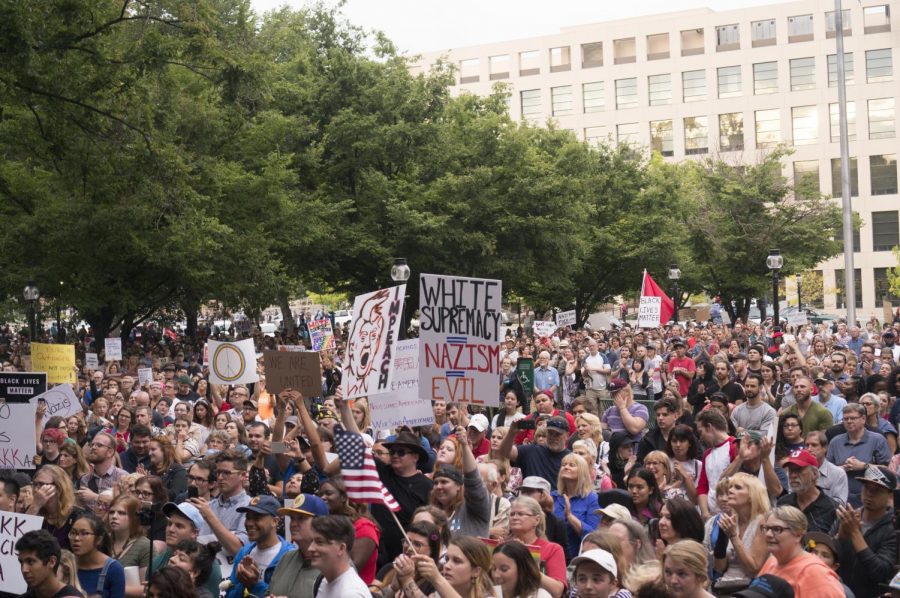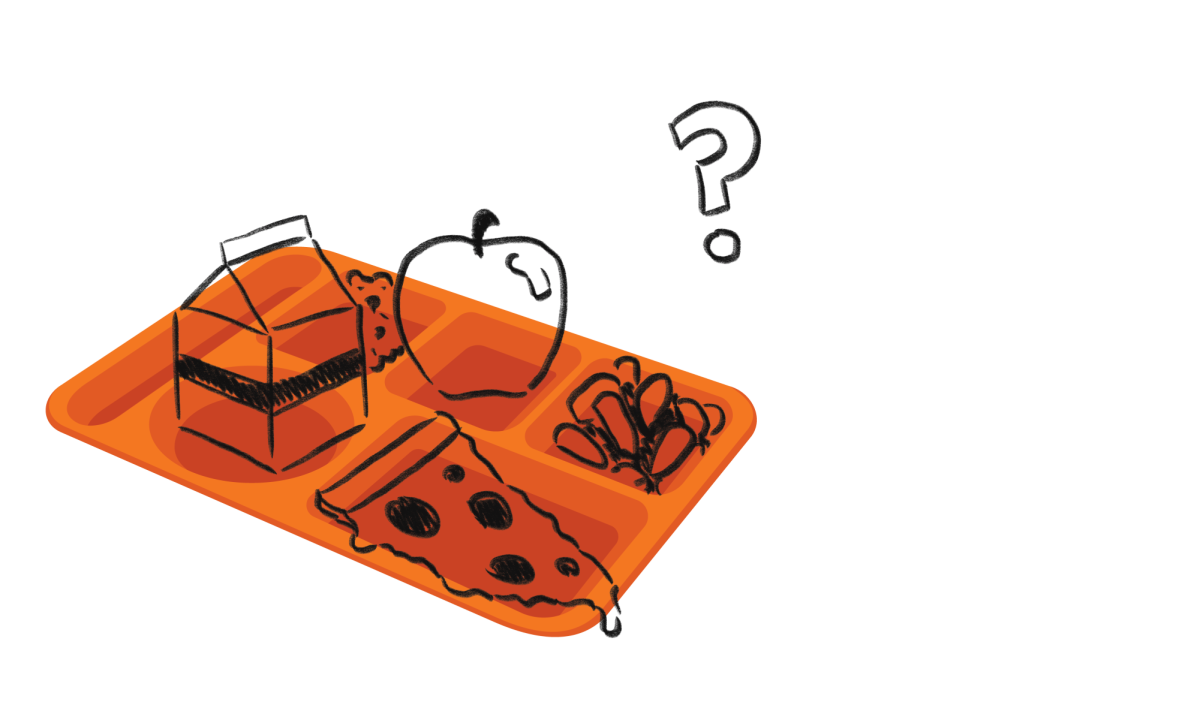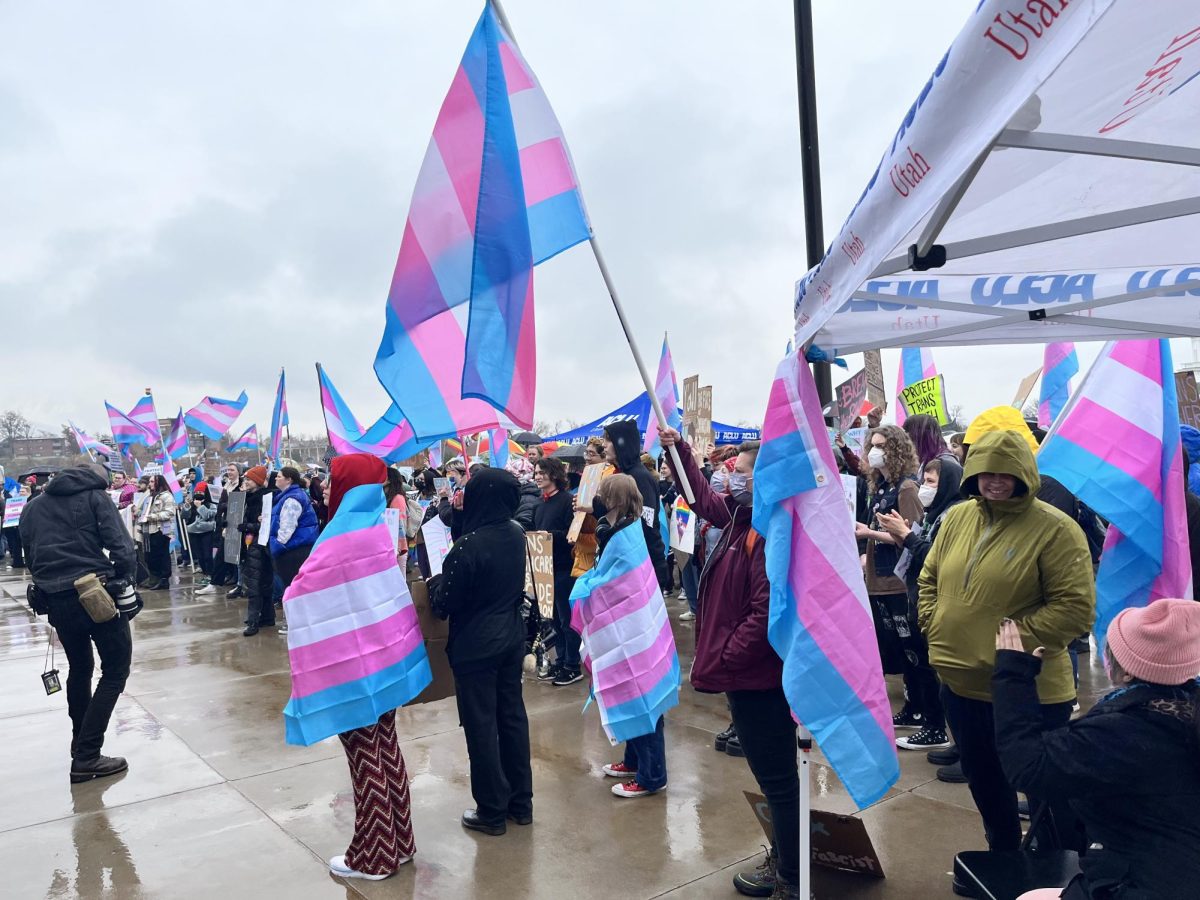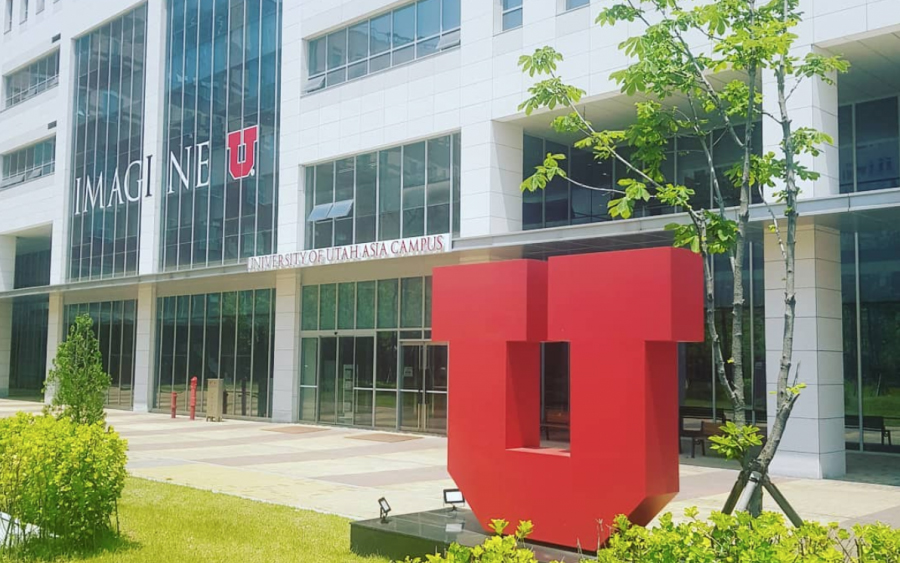Christopherson: Utah Was Right to Cut Ties with Banjo – but Damien Patton’s Apology Raises Bigger Questions
The crowd at the Solidarity Rally against racism at Washington Square Park in Salt Lake City on Monday, Aug. 14, 2017. (Photo by Rishi Deka | Daily Utah Chronicle)
May 6, 2020
Last week, the state attorney general’s office, Intermountain Healthcare and the University of Utah suspended their contracts with Banjo — an artificial intelligence and surveillance company — after learning that the company’s founder was an active member of a Ku Klux Klan faction and participated in a synagogue shooting as a teenager. Banjo’s mission is “to save lives and reduce human suffering” by supposedly “delivering critical and life-saving information in seconds,” but the company has abused its power before. In 2015, Banjo used fake apps to scrape social media for data, a problematic history that becomes even more frightening when paired with the founder’s past involvement with white supremacists.
I was comforted by the state’s swift reaction to this information about Damien Patton’s history of extremism. Any different or less immediate response would have been unacceptable — and frankly, Patton’s company is suspect in and of itself. As per Utah’s former contract, Banjo had real-time access to all the state’s government-owned surveillance, down to traffic cameras, for the claimed purpose of reducing police response times to crimes and emergencies. A Vice article published in March said the company has essentially been “[creating] a persistent panopticon pointed at everyone who lives in Utah.”
It’s an indisputable positive that our state, our school and our local hospitals are no longer working with Banjo. But Patton’s apology statement raises some difficult questions about how our society should deal with people who have committed hate crimes. When is it fair to say one of these people has earned our forgiveness and their place in our community? How can we trust that they have changed? And, most challenging, is it possible to rehabilitate them while prioritizing the physical and emotional safety of their targets and victims?
Patton’s statement to the Deseret News provides some helpful context as we consider these uncomfortable questions. He writes, “Thirty-two years ago I was a lost, scared and vulnerable child. I won’t go into detail, but the reasons I left home at such a young age are unfortunately not unique; I suffered abuse in every form. I did terrible things and said despicable and hateful things, including to my own Jewish mother, that today I find indefensibly wrong, and feel extreme remorse for. I have spent most of my adult lifetime working to make amends for this shameful period in my life.”
Patton goes on to describe his years of living on the street as a young teenager and says that he was “taken in” by the KKK.
It’s difficult to know whether Patton’s statement is sincere. Given his company’s bad behavior, the millions of dollars he has at stake, and the general lack of public information about Patton’s life prior to or after the 1990 shooting in which he was involved, it seems risky to take him at his word. But this problem is far bigger than Patton’s personal transformation. Hate groups and white nationalism are more prevalent in the American landscape now than they have been in decades, and they consistently recruit young people from backgrounds similar to the one Patton describes. A 2019 report by the UN notes that economic vulnerability, social or political marginalization, permissive family and social networks, exposure to violent extremist propaganda and geographic proximity to conflict “increase youths’ vulnerability to recruitment by terrorist groups.”
So, Patton’s specific case aside, what do we do with the many troubled teenagers and hate crime offenders like him?
Researchers, government agencies, and non-profit groups around the world have worked to answer this question and develop programs to help. There’s no consensus about exactly what works to reform hate crime offenders — whether their crimes were motivated by race, religion, sexual orientation or another characteristic — but some experts involved in rehabilitation efforts believe wrap-around services are the best method. These programs typically consist of education, stable housing, job training and mental healthcare to help people visualize and build a life outside of their hate group.
While such extensive social services are resource-intensive, they’re less expensive and believed to be more successful than incarceration. And once they’ve been rehabilitated themselves, some previous extremists end up participating in and even leading efforts to prevent hate crimes and weaken white supremacy’s growing hold in the United States. Non-profit organizations like Life After Hate, which was founded by former neo-Nazis, work directly with reformed or rehabilitated white supremacists to help others leave extremist groups. (Life After Hate received federal funding for their efforts to prevent domestic terrorism until President Trump yanked its contract shortly after taking office.)
With the tragic events of the Charleston, El Paso Wal-Mart, Christchurch and Tree of Life Synagogue shootings and the March on Charlottesville still fresh in our collective memory, the idea of allowing people who have committed such heinous acts of violence to re-enter our society is unsettling at best, and may, understandably, be difficult for victims and potential targets of this type of crime to stomach. That matters — especially since those are the groups with the right to decide whether to forgive someone’s past — and rehabilitation should never come at the cost of others’ safety and healing.
Still, the #MeToo era has taught us that addressing widespread bigotry and targeted violence takes much more than simply “canceling” people for their past behaviors and attitudes — decrying white supremacy without taking clear steps to address it is not enough, in other words, and even incarceration leads to recidivism more often than not. That means we have no choice but to find another path forward for these individuals, which may require us to accept them back into society on one level or another.
We don’t have sufficient information to make a judgment call about the truthfulness of Damien Patton’s professed ideological shift, sorrow for his actions, and desire to make the world a better place. But, theoretically, that kind of remorse and rehabilitation are exactly what we hope former white nationalists — not to mention sexual predators and other violent criminals — will come to experience. Patton must be evaluated as an individual, but the discovery of his white nationalist past provides a unique opportunity for Utahns to consider the best ways to handle a person’s violent past and how or whether it should impact their current role in our society.












